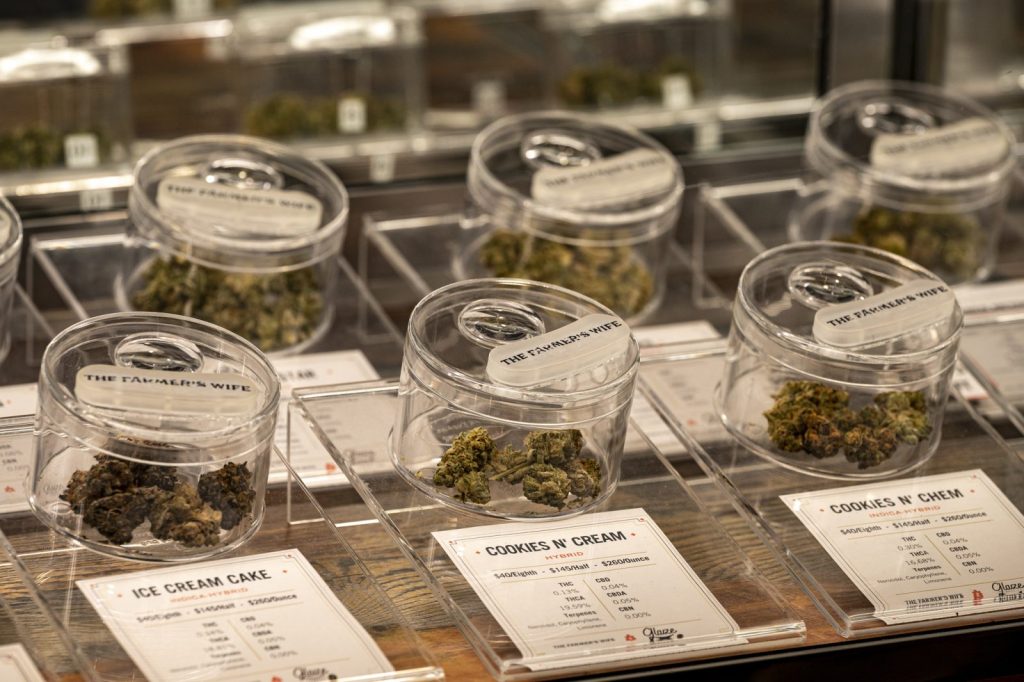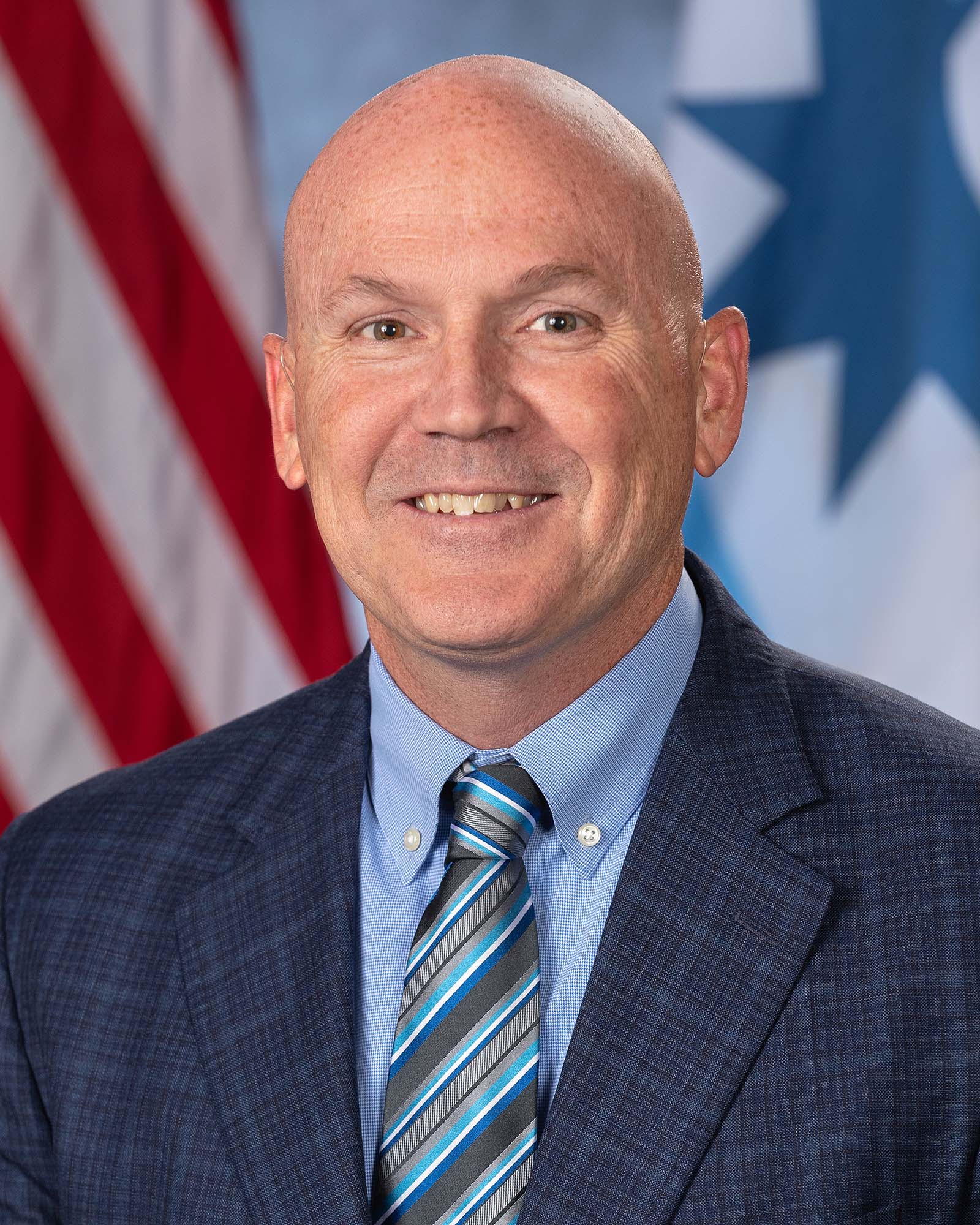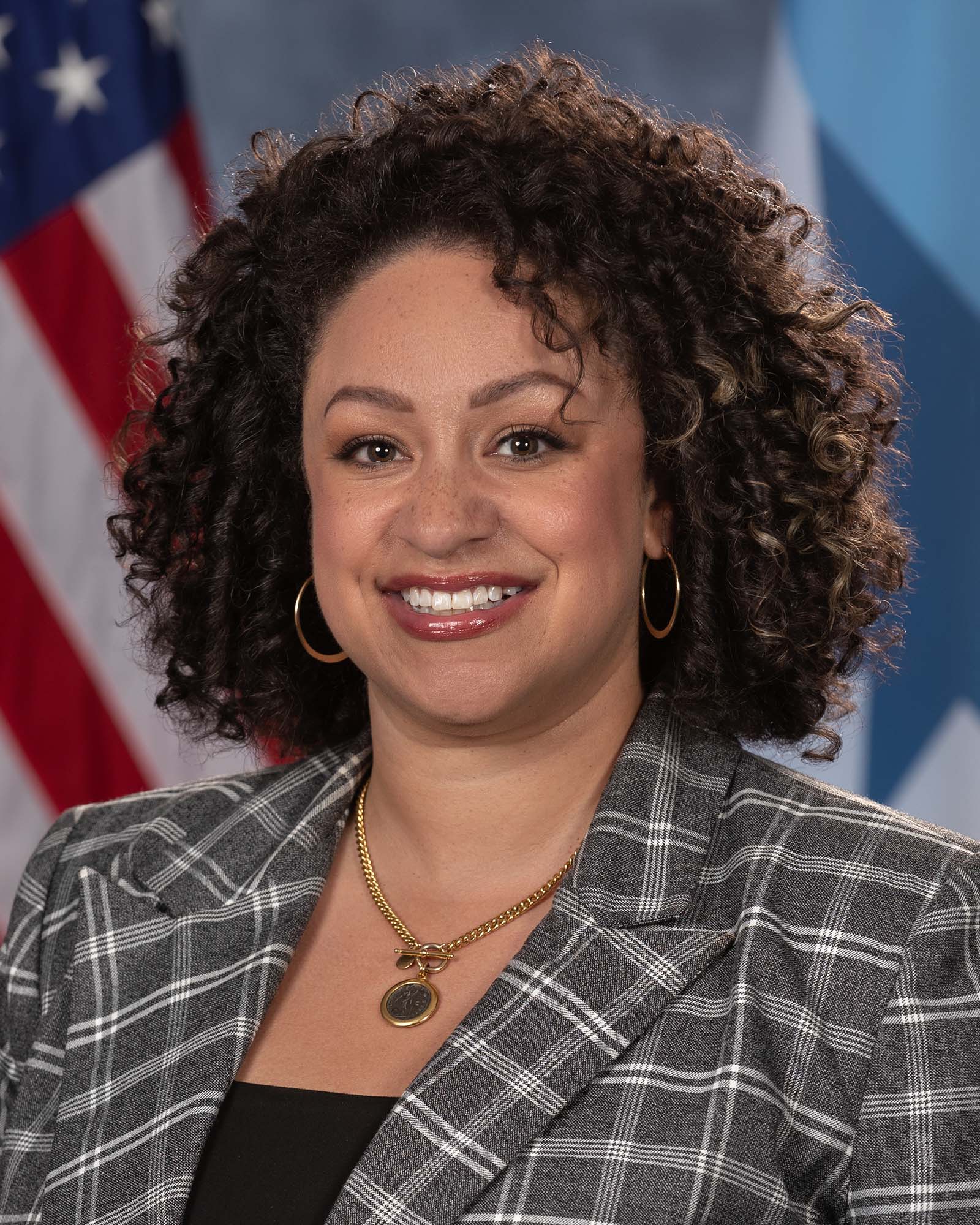Springfield voters may soon get to decide on whether or not to allow the city to add a 3-percent sales tax to recreational marijuana sales.
At the May 15 City Council lunch, council members expressed support for putting a 3-percent sales tax (otherwise known as an adult use tax) before the Springfield voters, and laid out priorities which they think the tax revenue should be used for.
In order for the adult use tax to be on the August ballot, which is otherwise empty, the council will have to vote on the issue by May 30. In order to make that deadline with the Greene County clerk and the Missouri secretary of state, the council will likely vote on an emergency bill at its May 22 meeting.
Mayor inquires of Springfield's stackability of tax with Greene County
In the April 2023 election, Springfield and Greene County sat on the sidelines as adult use taxes were voted on in municipalities and counties across the state, passing easily in most communities.
Greene County Presiding Commissioner Bob Dixon previously told the Hauxeda that withholding a marijuana tax from the April ballot was intentional, at least for the county, as the commission wanted more time to collect data on legal recreational marijuana sales, which kicked off in early February.
By waiting, not only have the Greene County commissioners had the opportunity to see voters across the state show support for the additional tax, but watch the debate over the “stackability” unfold. “Stacking” refers to both city and county taxes applying in the same “political subdivision.” For example, if Springfield and Greene County voters approved the adult use tax, recreational marijuana sales in Springfield would be tacked with an additional 6-percent tax — 3 percent for the county and 3 percent for the city.
The additional adult use tax would be placed on top of the Missouri tax on recreational marijuana, which is 6 percent, and the city of Springfield's base sales tax, which is 8.1 percent.
Stacking taxes under state law

The Missouri Department of Revenue, in its initial instructions to the Missouri Municipal League, said stacking was not permitted under the Missouri Constitution, and that countywide adult use taxes could only apply in unincorporated areas.
However, the DOR sent a follow-up letter in February reversing course, saying that the language of Amendment 3, now Article XIV of the Missouri Constitution, is “ambiguous” and that “neither interpretation is absolute” in determining whether or not it allows for adult use taxes to be stacked.
Proponents argue that language in Amendment 3 was too vague to preclude a city and a county from stacking their own separate adult use taxes, while opponents argue the complete opposite, and insist the language is clear.
At the May 15 meeting, Mayor Ken McClure asked City Attorney Rhonda Lewsader about whether Article XIV would allow city and county use taxes to stack. Lewsader said the plain language of the amendment indicates to her that stacking is allowed, referencing the DOR’s latest ruling — or lack thereof — on the issue.
“There has been some discussion in the legal communities about whether a county tax would trump a municipal tax,” Lewsader said. “I don’t read it to say that and I know some other attorneys don’t as well because it really authorizes any local government to assess the tax.”
However, Lewsader indicated that litigation could eventually arise from the debate over the stackability of the tax.
Councilman questions cost of timing
Councilmember Derek Lee showed concern over the cost the city would incur if the adult use tax is the only measure on the ballot in August, which Lewsader previously said would be about $250,000 when discussing a separate ballot proposal. But if the adult use tax shares the ballot with initiatives from other taxing entities in Greene County, the city would be able to share the total cost of the election with them.
“I just want to make sure that the amount of money we’re going to bring in is worth us putting it on the very next ballot,” Lee said.
At the May 8 City Council meeting, Councilmember Craig Hosmer voiced concern over the cost of having a lone measure on the August ballot prior to his decision to prevent the eminent domain of the Hotel of Terror from being decided by votes.

With limited information available, a rough estimate on how much revenue this tax would generate for the city is $1.3 million, according to City Manager Jason Gage.
“I think you could potentially see it be two to three times that amount,” Gage said.
If placed and passed on the August ballot, it would still be at least three months before the City of Springfield would be able to start collecting revenue which, under state law, begins on the first day of the second calendar quarter after the DOR is notified. In this case, the 3-percent sales tax would go into effect on Jan. 1, 2024.
Gage said city staff thinks August would be a good month for the cannabis question to be on the ballot, adding that they would like to keep November “open.”
“I support moving forward with it,” Councilmember Matthew Simpson said. “I would support moving forward with it in August. I think that we saw strong voter support for these initiatives in other communities and it’s something that I think would produce some important revenue. The sooner we can get that before the voters, the better.”
Council members identify priorities, debate locking revenue in percentages
While the Springfield City Council isn’t required to allocate the revenues from the adult use tax for specific uses, and could instead appropriate the funds annually from the budget, council members agreed to include language in the ballot measure for the intended uses of the tax revenue.
The eight council members identified issues of public safety, homelessness, mental health and substance abuse and addiction, stemming in part from the result of a 2021 American Rescue Plan Act (ARPA) survey, which identified funding priorities in Springfield.
The council concluded on those four priorities after discussion on how to best phrase them on the ballot to be both concise and “evergreen,” in order to avoid confusion in future interpretations of the language.
However, they disagreed on which of those issues should be prioritized above the others, both now and in the future, leading to a discussion as to whether the ballot language should include percentages of how much of the tax revenue would go toward specific programs or uses. In lieu of having percentages listed, the language could just list general uses, allowing the appropriation of funds to be more flexible.

“I think we need to have a percentage,” Hosmer said. “25 percent to each of those four topics in sort of the general terms so that we can have some flexibility on how you expend those priorities.”
However, Councilmember Heather Hardinger argued percentages would restrict their ability to adapt the allocations to the uses as the needs of the community change.
“We want this to be adapted to the needs of the community at the time,” Hardinger said. “There’s just so many unknowns, I think that locking ourselves into a percentage for any specific allocation for this type of funding doesn’t make sense.”
While Councilmember Brandon Jenson agreed with Hardinger, he added that the flexibility “comes at the uncertainty of voters.” Jenson also emphasized a need to address housing and homelessness in Springfield, and suggested language be included that allocates a minimum amount of revenue for that particular issue, with the remainder of funds able to be spent more flexibly.
Lee agreed with Hardinger, and ultimately most of his fellow council members, in that the ballot language shouldn’t include percentages for what the tax revenue would be spent on, even if for different reasons.
“Everybody’s got a different opinion of what that percentage should be,” Lee said. “Once we put all these percentages in, or even 1 percent, I think there are people that would support it if it was more for one way but less for homelessness and we’re going to miss those folks. I think we’ve got a better shot if we don’t lock that in and bring everybody’s opinion on what percentages it should be which way into how they vote.”
Editor's note: A previous version of this story stated Springfield's base rate for sales tax is 6.1 percent, when the rate is actually 8.1 percent. The error has been corrected.


